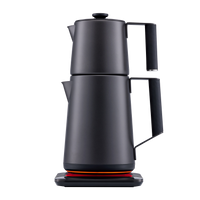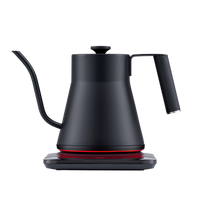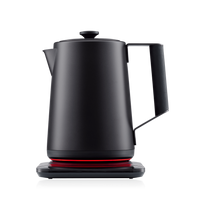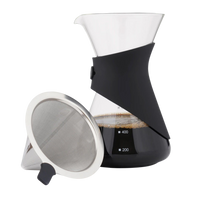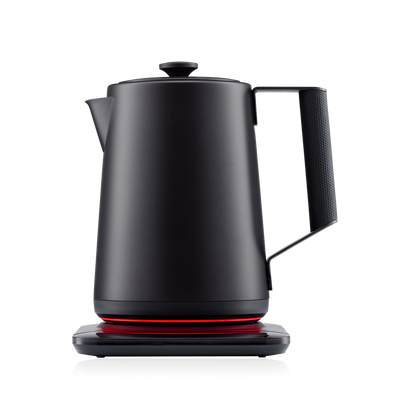black tea vs green tea: the ultimate guide

Summary: Explore the intricate differences between Black and Green Tea. Delve into their manufacturing processes, unique flavor profiles, health benefits, and caffeine content. Let’s delve into the unique manufacturing processes of black tea and green tea and see which might be your cup of tea!
Both black and green teas have been consumed for centuries, finding their roots in ancient Chinese traditions. As derivatives of the Camellia sinensis plant, what primarily distinguishes them are their processing methods and, as a result, their flavor profiles and health benefits. Here's a more detailed comparison:
Manufacturing Process
Black Tea:
- Plucking: Hand-picking the youngest leaves and buds ensures optimal freshness.
- Withering: Spread out in large trays or beds, the leaves lose moisture, becoming soft and pliable, prepping them for rolling.
- Rolling: This mechanical process breaks down the leaf cells, releasing essential oils and enzymes necessary for oxidation.
- Oxidation: The most crucial step in black tea production. The leaves are left in a controlled environment, allowing them to darken and develop their distinct flavor.
- Drying: The oxidation is halted by drying the leaves, using large ovens or dryers.
Green Tea:
- Plucking: Fresh leaves are hand-picked, similar to black tea.
- Steaming/Pan-frying: To deactivate oxidation enzymes, leaves are steamed or pan-fried. This step preserves the green hue and delicate flavors.
- Rolling: Green tea leaves are shaped and readied for flavor extraction during this stage.
- Drying: Using warm air or pan-frying, moisture is reduced, ensuring longevity.
Flavor Profiles
Black Tea: Often has a bold and robust flavor, ranging from malty to fruity. Its oxidization gives it its strength, which can stand up to additions like milk or spices.
Green Tea: Delivers a more delicate taste, often described as grassy or vegetal. Its flavor nuances can range from sweet to savory, depending on factors like origin and specific processing methods.
Health Benefits
Both teas are rich in antioxidants, but they differ in their types and concentrations due to their processing.
Black Tea: High in theaflavins and thearubigins, it may contribute to heart health, improve gut health, and lower blood pressure.
Green Tea: Contains a high amount of catechins like EGCG, known for fat burning, brain health improvement, and potential cancer-fighting properties.
Caffeine Content
Black Tea: Typically, a cup of black tea contains between 40-70mg of caffeine. This can vary based on factors like brewing time and tea quality.
Green Tea: Generally, a cup of green tea has 20-45mg of caffeine. However, this can fluctuate based on factors like steeping duration and the specific type of green tea.
Which One Should You Choose?
Your preference might hinge on taste, health benefits, or even the ritual associated with brewing. For a stronger morning kick, black tea might be your choice. If you're seeking a milder, more refreshing experience, green tea is the way to go.
Brewing Perfection with the Right Equipment
To extract the full flavor potential and benefits of your tea, the brewing temperature is crucial.
Black Tea: The Chaiovar Electric Samovar is tailor-made for black tea enthusiasts. This samovar intuitively adjusts to the optimal temperature for black tea, ensuring a rich and flavorful brew every time.
Green Tea and More: The Luna Tea Kettle is your versatile companion for brewing a spectrum of teas. With adjustable temperature settings, it's perfect for green tea, black tea, and everything in between.
Conclusion
The worlds of black and green tea are vast and rich with flavor, history, and health benefits. Whether you're sipping for enjoyment, health, or a bit of both, each cup tells a tale of ancient traditions and meticulous craftsmanship. Cheers to finding your perfect brew!
Common Questions and Answers
Q: Which tea has more caffeine, black or green?
A: Black tea usually contains more caffeine than green tea, but this can vary based on several factors, including steeping time and the specific variety.
Q: Is it true that green tea is healthier than black tea?
A: Both teas offer significant health benefits, with green tea being high in catechins like EGCG and black tea rich in theaflavins and thearubigins. Your choice should depend on your personal health goals and flavor preferences.
Q: How can I reduce the caffeine content in my tea?
A: You can slightly reduce caffeine by doing a quick rinse: pour hot water over the leaves, let it sit for about 30 seconds, and then discard. Then, brew as usual.
Q: Does the quality of water I use affect the tea's flavor?
A: Absolutely! It's recommended to use filtered or spring water for a cleaner taste, especially when brewing delicate teas like green tea.
